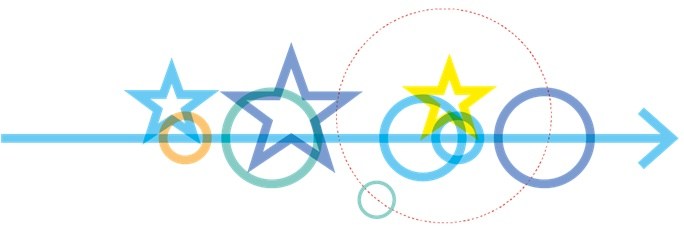Europe for the Future! - the 10th Anniversary of the EfCP in Croatia along with an ECP Meeting in Zagreb

At the occasion of the 10th anniversary of the Europe for Citizens programme in Croatia, the Croatian Government Office for Civil Society Support hosting the Croatian Contact Point for Europe for Citizens organised the high-level conference "Europe for the future!" gathering Croatian civil society, Europe for Citizens Contact Points, Commission representatives from the Commission Representation Office in Zagreb, from DG HOME and the Education, Audiovisual and Culture Executive Agency (EACEA) and representatives of the Croatian government.
The informal ECP meeting in Zagreb was used to inform ECPs about the selection results of 2016 and of the first selection round of 2017, about the rules for operating grants and the new ECP e-form to be used for this purpose and to discuss on future perspectives for the Europe for Citizens programme.
Role of civil society and of ECP Croatia at national level
Civil society and NGOs are strongly supported by the Croatian Government and play an important in the public debate within the country. The Government has set up a dedicated Government Office for Civil Society Support Office that is also hosting the National Contact Point for Europe for Citizens. In this setting, the Europe for Citizens Contact Point has the opportunity to link project results to ongoing policy debates in Croatia, to reach a large part of organised active civil society in the country and to create links between the programme and political decision-makers at national level. For example, the event was seen as a major policy event in Croatia and therefore opened by the Deputy Prime Minister and Minister of European Affairs, Ms. Marija Pejčinović Burić. Public television broadcasted an interview with Ms. Maja Tomičić, the responsible of the Contact Point during a morning television magazine. It appears clearly that the Europe for Citizens programme is seen as an important EU programme in Croatia.
Operating grants: call for proposals 2018-2020
Croatian civil society showed huge interest in the call for proposals: "Structural support for European public think tanks and for civil society organisations at European level 2018-2020" which ran in the second half of 2017. Since Croatia joined the Europe for Citizens programme, only one Croatian organisation has been granted an operating grant. The Volunteers' Centre Zagreb received an annual operating grant in 2010 and reported about this experience in the workshop session. Belgrad Open School, a beneficiary of a multi-annual operating grant under strand 1 for the current period 2014-2017 explained that the operating grant had allowed them to multiply activities, to strengthen the impact on the network and to guarantee sustainability of results. The workshop discussions showed that it would be important to offer more small-scale operating grants to smaller organisations with a potential to reach out to many citizens in Member States where so far not many Europe for Citizens operating grants have been awarded.
Future Europe for Citizens programme
Representatives of civil society and ECPs unanimously underlined the importance of the programme and the need for ensuring its continuation in the next multiannual financial framework with an increased budget.
With the aim of further improving the communication with ECPs on the preparation of the future generation of citizenship programmes after 2020, a specific Yammer Group named "Contributions for future EfC programme" was set up by EACEA. ECPs are invited to post contributions to put forward ideas and proposals.
European Year of Cultural Heritage
The discussion with ECPs on the 2018 annual priority "European Year of Cultural Heritage" showed that the European Year is seen as a communication campaign that can be used to target citizens at the local level by evoking common roots that make the notion of Europe tangible and meaningful for them. ECPs confirmed that citizens have an interest in cultural heritage and that this priority is not only relevant for strand 1 but as well for strand 2 of the programme. However, it is important that cultural heritage is brought outside museums and that the European Year is used as an open project providing space for dialogue.
European Solidarity Corps
A discussion with a young volunteer (candidate for becoming a member of the European Solidarity Corps) and ECPs reflected many questions that are still open. ECPs and volunteers are looking forward to the next phase of the Solidarity Corps scheme hoping that it will be easier for applicants to understand which are the opportunities offered.
Communication
The communication between Commission, EACEA and ECPs has been improving in the last years, notably since the training session organised by EACEA in March 2017.
Several steps have been taken:
-
Within the collaborative Internet platform Yammer, EACEA developed a specific tool to facilitate the exchange of information between COM, EACEA and ECPs.
-
The new ECP from Luxembourg launched an exercise through Yammer where ECPs are invited to develop country sheets. The Commission and EACEA follows the discussions through Yammer.
-
The Italian ECP developed a database for partner research that could possibly be extended and used as a common tool.
-
ECPs created Facebook group (without the Commission and EACEA) for the exchange of internal information that does not need to be shared with the European institutions (See: https://www.facebook.com/eu4citizens/).
-
ECPs were invited to share their main events with the Commission and EACEA so that they could be also plan missions accordingly.
-
ECPs were requested to also suggest possible opportunities to disseminate the impact of the Programme in their country.
-
As of 2018 the ECPs will be done by e-form. Steps and 'how-to' was detailed in a presentation. Publication on Yammer on the first week of October 2017 and deadline on 15 November 2017.
The next ECP meeting is scheduled for 2018.
Jutta Koenig-Georgiades
